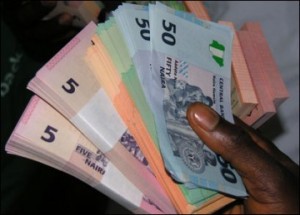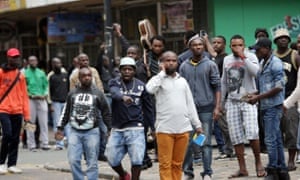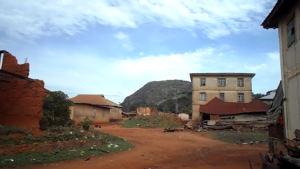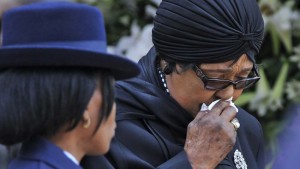Bi ọkọ ìyàwó bà ti lówó tó ni ó ti lè fi owó si inú àpò ìwé fún owó orí àti àwọn owó ẹbi yókù. Ni ayé òde òní, owó fún àpò ìwé méjìlá wọnyi lè bẹ̀rẹ̀ lati Aadọta Naira, ẹbí dẹ̀ lè din àpò ìwé kù lai ṣi àpò ìwé tàbi ka owó inú rẹ̀.
Òwe Yorùbá ni “Bíbí ire kò ṣe fi owó rà”. Ìyàwó ìbílẹ̀ ki ṣe iṣẹ́ ọkọ-ìyàwó nikan, bi ẹbí ìyàwó bá wo àwọn ènìà pàtàkì lẹhin ọkọ, inú wọn a dùn ju owó lọ, nitori wọn a mọ̀ wípé ilé tó dára ni ọmọ wọn nlọ. Ọpọlọpọ ẹbí ki gba owó orí mọ, wọn a fún ẹbí ọkọ padà ni àpò ìwé owó orí pẹ̀lú ìkìlọ̀ wípé “ọmọ wọn ki ṣe tita, ṣùgbọ́n ki ọkọ àti ẹbi rẹ tọju ọmọ wọn”. Ẹ ṣe àyẹ̀wò àwọn ohun ti àpò ìwé owó wọnyi wà fún ni ojú ìwé yi.
ENGLISH LANGUAGE
The amount in the envelopes for bride price and other family envelopes are often depend on the purse of the groom. In this modern time, the amount in each of the twelve (12) envelopes can start from Fifty (50) Naira. The bride’s family can also use discretion to reduce the number of envelopes or not count the amount in the envelopes to assist the Groom.
According to Yoruba proverb, “Good pedigree cannot be bought with money”. Traditional marriage ceremony is not the responsibility of the groom alone, if the bride’s family observe that the groom has good family support, he will be more honoured than preference for money. Many families are no longer collecting “Bride Price”, hence the symbolic envelopes containing the “Bride Price” is returned with a caution that “their daughter is not for sale, but the groom and his family should take good care”. Look through the list of envelopes and the purpose for which the envelope is used.
| ÀPÒ OWÓ ÌYÀWÓ – BRIDAL MONEY ENVELOPES | |||||
| Yorùbá | English | Iye Owó | Amount Naira | Iye ti agbára ká | Flexible Amount |
| Owó Ìkanlẹ̀kùn | Knocking on the door money | Ẹgbẹ̀rún Naira | N1,000.00 | lati Aadọta Naira | From N50.00 |
| Owó Irinna | Transportation money | Ẹgbẹ̀rún Naira | N1,000.00 | lati Aadọta Naira | From N50.00 |
| Owó Iwọlé | Entry money | Ẹgbẹ̀rún Naira | N1,000.00 | lati Aadọta Naira | From N50.00 |
| Owó Ìyá gbọ́ | Money for mother-in-law’s information | Ẹgbẹ̀rún Naira | N1,000.00 | lati Aadọta Naira | From N50.00 |
| Owó Bàbá gbọ́ | Money for father-in-law’s information | Ẹgbẹ̀rún Naira | N1,000.00 | lati Aadọta Naira | From N50.00 |
| Owó Ìyàwó Ilé | Money for the Bridal family wives | Ẹgbẹ̀rún Naira | N1,000.00 | lati Aadọta Naira | From N50.00 |
| Owó Ọmọkunrin Ilé | Money for Bridal family male youths | Ẹgbẹ̀rún Naira | N1,000.00 | lati Aadọta Naira | From N50.00 |
| Owó Ọmọbririn Ilé | Money for Bridal family female youths | Ẹgbẹ̀rún Naira | N1,000.00 | lati Aadọta Naira | From N50.00 |
| Owó Ijoko Àgbà | Money for the Bridal family elders’ sitting | Ẹgbẹ̀rún Naira | N1,000.00 | lati Aadọta Naira | From N50.00 |
| Owó Ìṣígbá | Money for opening the Bridal Bride Price Dish | Ẹgbẹ̀rún Naira | N1,000.00 | lati Aadọta Naira | From N50.00 |
| Owó Ìṣíjú Ìyàwó | Money for opening the Bridal Bridal veil cover | Ẹgbẹ̀rún Naira | N1,000.00 | lati Aadọta Naira | From N50.00 |
| Owó Orí | Bride Price | Ẹgbẹ̀rún Naira | N1,000.00 | Ẹbí ìyàwó a ma dapadà | It is often returned |
Originally posted 2015-03-13 10:15:11. Republished by Blog Post Promoter









